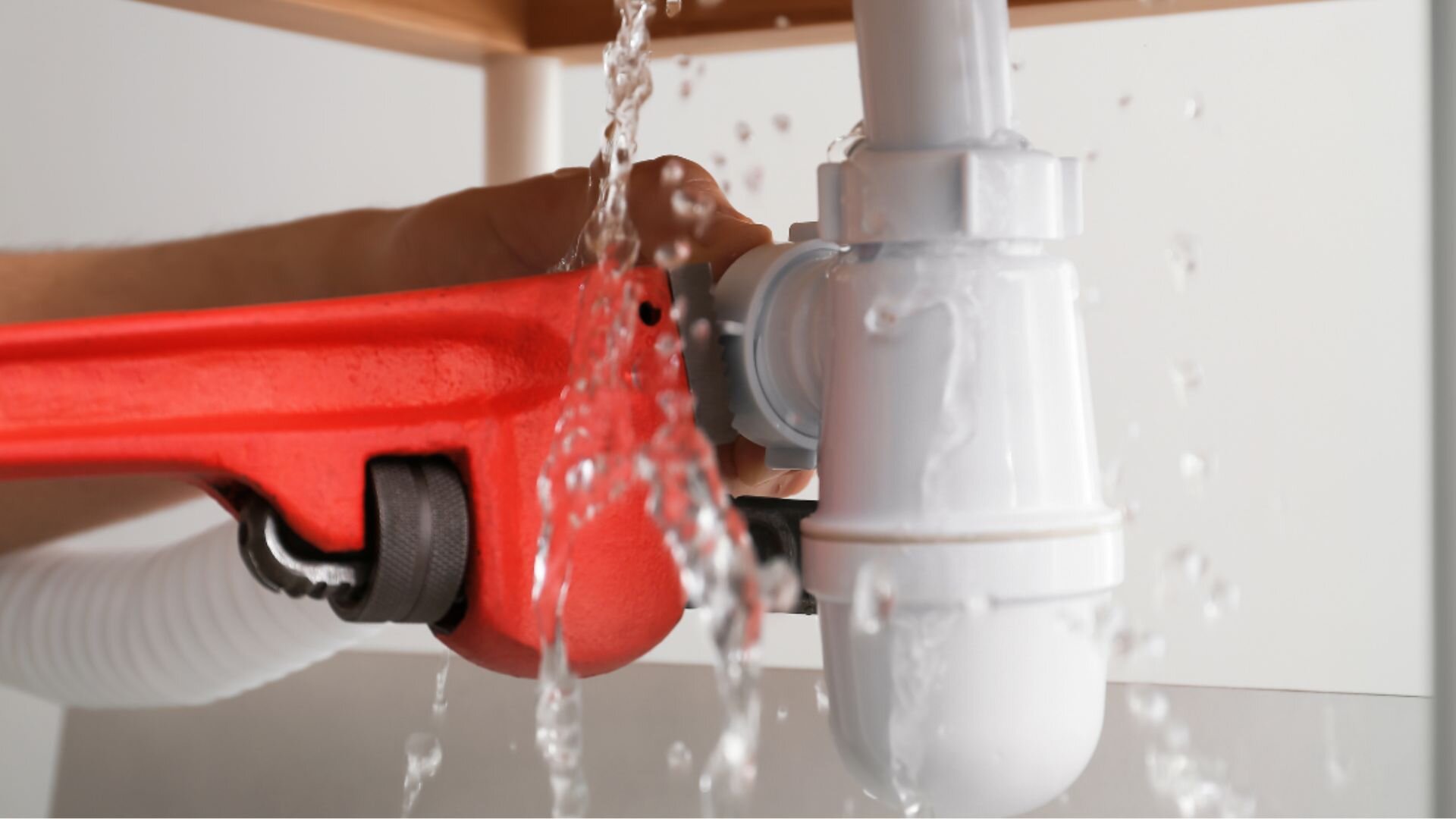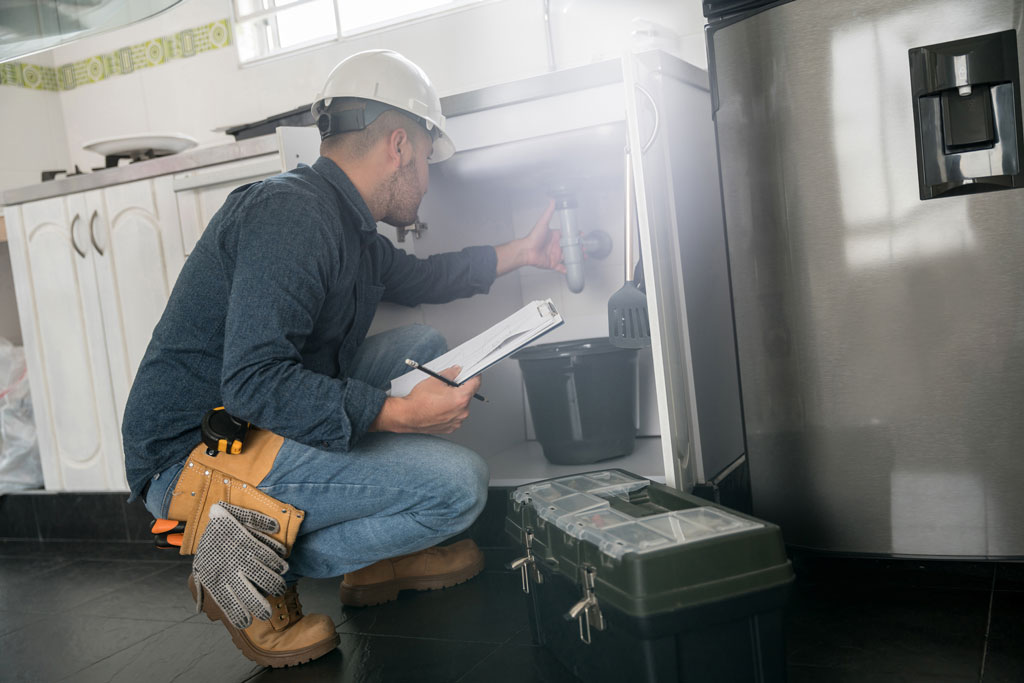Temporary Tips for Critical Situations: What to Do Until Help Arrives
Temporary Tips for Critical Situations: What to Do Until Help Arrives
Blog Article
In this article on the next paragraphs yow will discover lots of brilliant information relating to Expert Tips for Emergency Plumbing Repairs.

Pipes emergencies can strike at any time, causing stress and anxiety and possible damages to your home. Whether it's a burst pipe, a clogged up drainpipe, or a leaking faucet, recognizing just how to handle the situation till a specialist plumbing technician arrives can save you from more issues. This article gives necessary emergency plumbing pointers to assist you reduce damages and gain back control during a plumbing crisis.
Switch off the Supply Of Water
The very first step in any type of plumbing emergency situation is to turn off the water supply. For local issues, such as a dripping faucet or toilet, switch off the valve near the component. When it comes to a significant leak or ruptured pipe, situate your home's primary water shut-off shutoff and turn it off promptly. Knowing the place of these shutoffs beforehand can conserve valuable time during an emergency situation.
Shut Off Your Hot Water Heater
In particular emergencies, such as a ruptured pipeline, it's a good idea to shut down your water heater. This avoids getting too hot or damage to the unit when water quits moving. Turn off the power supply to the hot water heater (electrical or gas) and let it cool off to stay clear of potential risks.
Briefly Quit a Burst Pipe
A ruptured pipeline can lead to considerable water damages in mins. To mitigate the problem:
Call an expert plumbing technician quickly to address the problem permanently.
Have an Emergency Pipes Set
Prepare a standard pipes emergency situation package to handle minor issues efficiently. Your set must consist of:
Having these devices available can make a significant difference in your ability to manage emergencies.
Unclog Drains Safely.
A blocked drain can be an aggravating and untidy problem. Here's how to tackle it:.
If these techniques don't work, stay clear of making use of extreme force, as it may get worse the obstruction.
Manage Overflowing Toilets.
An overflowing toilet can cause immediate disorder. Below's what you need to do:.
Address Small Leaks with Short-lived Fixes.
Tiny leakages can rapidly become substantial issues if left unattended. Utilize these temporary solutions up until professional aid gets here:.
While these solutions aren't long-term, they can help minimize water loss and damages.
Deal With Frozen Piping Very Carefully.
In chillier environments, icy pipes are an usual emergency situation. If you think a frozen pipeline:.
Know When to Call an Expert.
While quick fixes can help briefly, certain pipes issues need prompt expert attention. Call a plumbing technician if:.
Without delay speaking to an expert makes certain the issue is solved correctly and stops more problems.
Protect against Further Damages.
Taking fast action to lessen damages can save you money and time in the future. Here's exactly how:.
Conclusion.
Plumbing emergencies can be frustrating, yet with the right knowledge and tools, you can take care of the situation efficiently up until aid gets here. By turning off the supply of water, attending to tiny leakages, and making use of temporary fixes, you can reduce damages and maintain your home safe. Bear in mind, these ideas are momentary options; constantly get in touch with a licensed plumber to deal with the source of the issue. Preparation and quick thinking are your best allies in any plumbing emergency.
8 Helpful Tips for Managing Plumbing Emergencies at Home
If your plumbing system hasn’t failed once, wait for it because almost everyone has a story to tell. Sometimes, it could be simple emergencies such as a leaking pipe, a blocked cistern, or even a big burst pipe. In situations like this, you need to have some handy tips to save you some money and from possible damages.
Take care of minor issues early.
Sometimes, you could have avoided an emergency by taking proactive measures while it was still early. Some major plumbing emergencies can be a result of an ignored minor issue. We recommend that you have items like plumbing tapes and other related items. A plumbing tape can allow you to manage minor leaks before the plumber arrives.
Cut off the water supply.
This tip is essential in almost any type of leakage problem. For problems like minor leakages in the toilet or kitchen, turn off the supply that takes water to the affected pipes. If the leakage is a major pipe, you must shut off the supply valve to the entire building. This will help you avoid flooding your home and neighbors if you share a flat.
Know your plumbing system
Folks typically move into a new apartment without understanding the water supply around the building. This can prove disastrous if a water emergency arises and the plumber is far away. The previous tip will prove useless if you don’t practice this one. More importantly, know where your water shut-off valve is located – you’ll need that knowledge to prevent potential home floods.
Have some common handy tools
There are lots of plumbing emergencies that you can handle without hiring a plumber. That’s why you must keep some tools available always. Some tools that you can use to fix simple plumbing emergencies easily include plumbing tapes, screwdrivers, thread seal tapes, plungers, pliers, tape measures, and rubber gloves.
Insulate your pipes from cold
You’ll save yourself from many plumbing expenses if you protect your water pipes from the cold. This is because of the harmful effects that cold weather can have on your pipes. During winter, your pipes can burst from being overly expected to freezing temperatures. So, make sure insulators are there to keep the pipes working correctly.
Avoid practices that will clog your toilet.
Many people indulge in practices that can damage the plumbing system of the entire building. One of these is when they use their toilet to dispose-off garbage. They flush all kinds of things, such as paper towels, bandages, hairs, female sanitary products, etc., down the toilet. This will block your toilet in the long run, incurring unnecessary expenditures. Dump such waste in the trash instead.
Check your dials regularly.
Sometimes, there could be leakages in your home without noticing them in time. So, constantly monitor your water meter dial. If the dial is reading when there is nobody using water, this is an indicator that there is leaking. Check for leaks immediately. Call a plumber as soon as possible if you can’t find any.
https://www.constructionplacements.com/8-helpful-tips-for-managing-plumbing-emergencies-at-home/

We were introduced to that write-up on Plumbing Emergencies: Tips on What To Do Before through an associate on another blog. Be sure to take the opportunity to distribute this entry if you enjoyed reading it. Thanks for your time. Come back soon.
Free Estimate Report this page